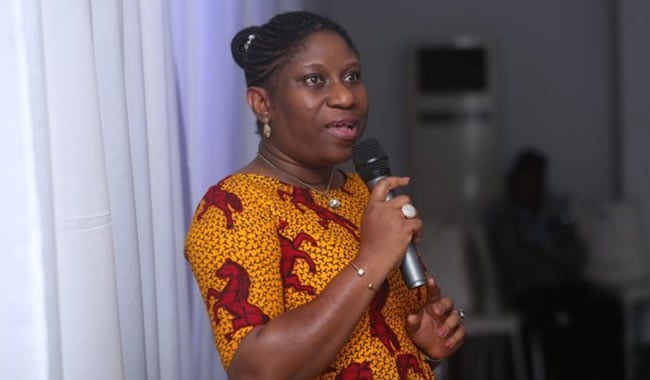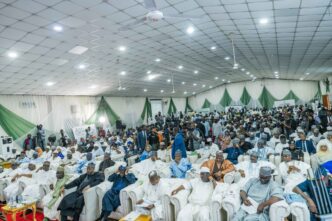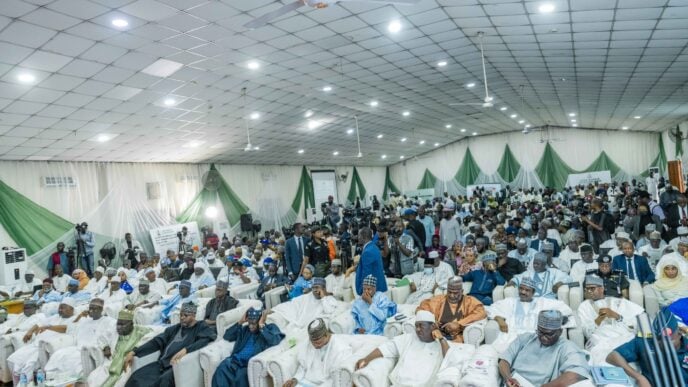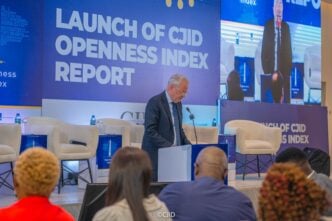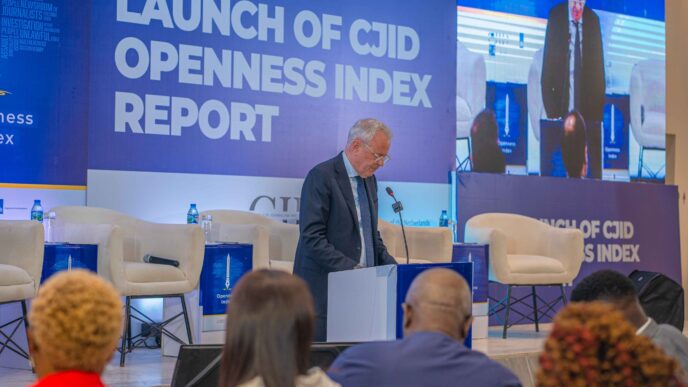Mojisola Adeyeye, NAFDAC DG
Mojisola Adeyeye, director-general (DG) of the National Agency for Food and Drug Administration and Control (NAFDAC) says the agency generated N2.5 billion from drug raids in Lagos, Onitsha, and Aba markets.
Adeyeye spoke in Abuja on Wednesday when she appeared before a house of representatives committee.
Recently, the drug regulatory agency raided and shut down markets in Aba, Abia; Onitsha, Anambra; and Lagos for trading in fake medicines.
“The charges collected were paid directly into a NAFDAC account. The total amount was about N2.5 billion—roughly N2.537 billion,” she said.
Advertisement
“These charges were not punitive but necessary. The standard fine for violating goods distribution and storage practice (GDSP) is N2 million, but in many cases, we reduced it to N500,000.”
Adeyeye said after the operation expenses were paid, the agency was left with N207 billion.
“For the operation in the three markets, Lagos, Onitsha, and Aba, about N996 million was spent,” she said.
Advertisement
“We had to borrow N159 million from an existing grant because we didn’t have funds. In addition, regulatory expenses amounted to N1.175 billion. So, out of the N2.537 billion, we have only about N207 million left in the account.”
Adeyeye added that the agency lacks funds to sustain crucial operations, adding that traders resisted operatives in Kano last year despite being authorised by a court.
She said a federal high court ordered the relocation of open drug market traders to a newly constructed coordinated wholesale centre (CWC), better known as the Kanawa pharmaceutical centre.
“The traders initially resisted. There were real threats of violence. But we had no choice but to act. They padlocked their shops, but we bought bigger padlocks and sealed them. To reopen, they had to agree to relocate,” she said.
Advertisement
“These are the lives we are trying to save. We had no funds at the time; our accounts had just been shut down and reopened with zero balance at the start of January 2024.
“Yet, we had to carry out the court judgement and move over 1,300 shops into the regulated centre.”
Adeyeye said Kano was the only state that established a CWC as ordered by a presidential directive before she assumed office.
“In the south—Lagos, Onitsha, Aba—there was no CWC. So, our approach was different. We had time to prepare, inspect, and charge offenders according to their violations,” she said.
Advertisement
When asked why Kano traders received milder treatment than those in southern Nigeria, the NAFDAC DG said the agency adhered to the court’s ruling and took into account security concerns.
“In retrospect, yes, we could have done more inspections or collected administrative fees. But that wasn’t feasible under the circumstances. Even a legal officer was almost killed at the court premises. It was a volatile situation,” she said.
Advertisement
After the presentation, the committee, chaired by Regina Akume, a Benue lawmaker, requested a detailed breakdown of fines collected from each market and the agency’s total revenue, including deductions made by the accountant-general’s office as a revenue-generating entity.
Advertisement




